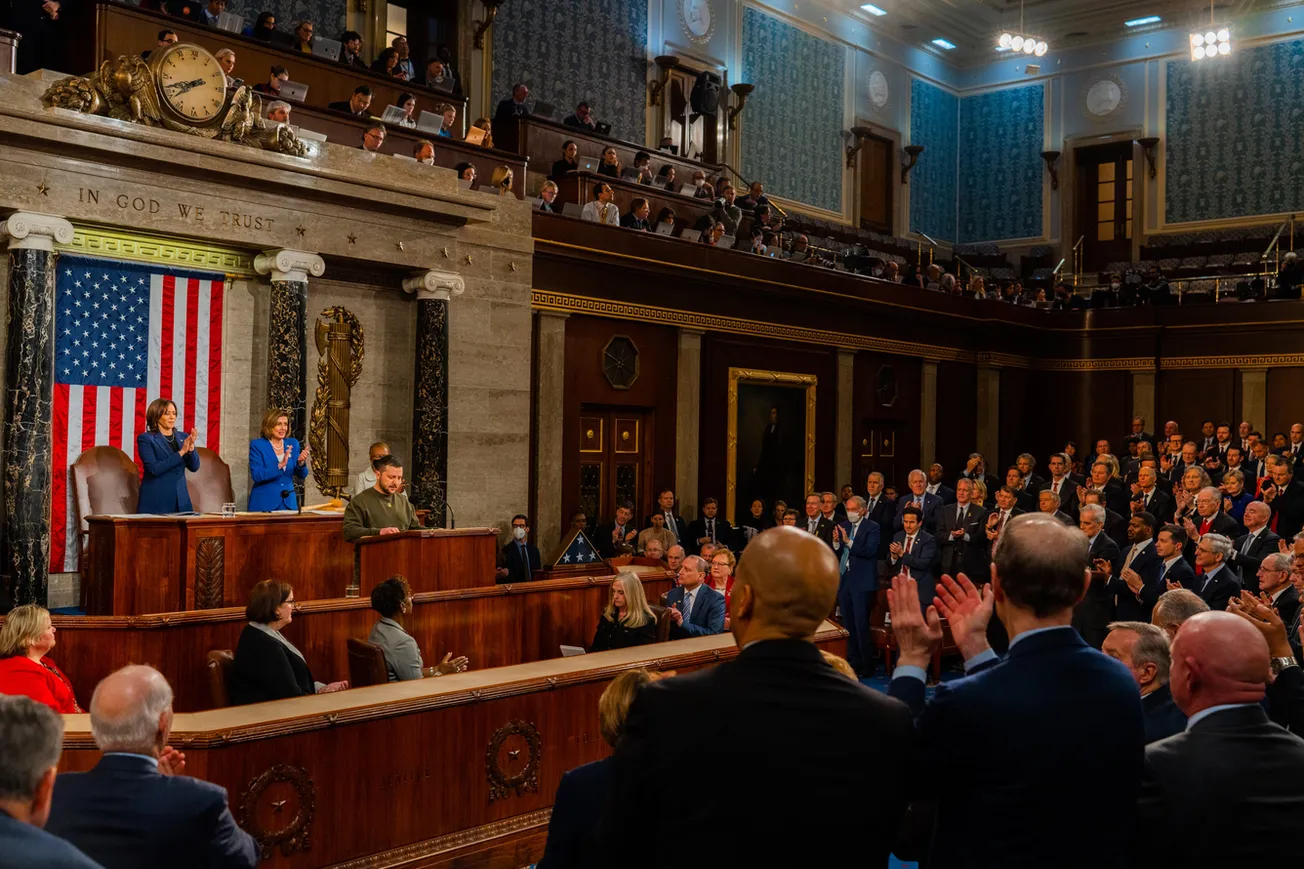Ukraine President Volodymyr Zelenskyy has already made history by brilliantly exploiting the idea of "conscience" as the driver to get the western world to stay united. By preying on our minds about doing the right thing, he has placed conscience above, or at par, with other principles such as sovereignty, territory, and independence.
Indeed, in his G20 Bali speech in November, leaked to POLITICO, he said: "Ukraine should not be offered to conclude compromises with its conscience, sovereignty, territory, and independence. We respect the rules, and we are people of our word."
Most law-abiding people can find no fault with his wording just as they wouldn't with other Utopian rallying cries, such as "Rid the world of hunger" or "Save our Planet." But where Zelenskyy has been brilliant is in making the best use of a politician's vulnerability in the hyper-charged social media environment in which we live. Make a moral argument, get the social media world behind it, and keep repeating the phrase. Any politician who says anything in opposition can be shamed to quickly comply after issuing a formal apology, or worse, be canceled altogether.
Zelenskyy has used the conscience argument to make joint addresses to Congress and the British Parliament. He has cajoled western politicians into giving, giving more, and giving even more. The United States has led the world in providing security assistance to Ukraine to the tune of $46.6 billion to date. Next in line is the U.K., with $5.1 billion. The U.S. State Department's list of weapons committed to Ukraine is scary. There is little doubt that America is fully engaged in the war.
But as voters more closely inspect Zelenskyy's statements, they see him as just one more politician who will say whatever he needs to get ahead. The words "We respect the rules" do not jive with the nearly weekly updates about senior Ukrainian officials being dismissed for cause. In January, in what was billed as a significant cleanup effort, a deputy head of the President's Office, a deputy prosecutor general, several deputy ministers, and several governors were ousted following several scandals on corruption charges or even collusion with Russia. On Sunday, Zelenskyy fired a senior military commander, the leader of Ukraine's defense forces in the country's east. Clearly, leading Ukrainian officials do not respect the rules.
Nor, as Zelenskyy claimed in Bali, has he kept his word. During his campaign in 2019, he promised Ukrainians that if elected, he would stop the 5-year war with Russia, defeat corruption, and revive the country's economy. Two and a half years later, Zelenskyy signed a transatlantic security agreement with America which exacerbated the already fragile situation in the east and brought Russia to attack Ukraine. As senior security analyst Katharine Quinn-Judge noted, Zelenskyy's promise to bring peace to Ukraine was yet to be met a year into the presidency.
A conscience-based war fought on righteousness alone cannot go on forever. Zelenskyy understands this well, so he has riskily turned his strategy to make all Americans guilty if they fail to support the war. In his press conference on Feb 24, a journalist asked him about how most Americans now think they are giving too much to Ukraine.
Zelenskyy's response was shockingly threatening to Ukraine's largest benefactor: "If they don't change their opinion, if they don't support Ukraine, they will lose NATO - they will lose the leadership position in the world. They will lose the support of a country with 40 million, with millions of children. Are American children any different from ours? Don't Americans enjoy the same things we do? I don't think we are that different."
Perhaps Zelenskyy was tired or was not prepped adequately. The average American who cannot place Ukraine on a map or has to work two jobs to keep his family afloat does not want to be held responsible for a conflict that occurred 5,000 miles away. Drawing false equivalencies between the likes of American and Ukrainian children - to drive home another emotional, conscience factor of support will likely fail. Most Americans believe that the sooner the fighting stops, territorial integrity issues aside, the killing and the suffering will cease. The end of the war could also mean more affordable gas and groceries - a possibility that millions of Americans would wholeheartedly welcome.
Beltway politicians and the media may not care about the hidden costs of the Ukraine war, but the average American does. The tide will further shift with GOP presidential candidates sounding the alarm on how the U.S. government is spending more resources in Ukraine and less in East Palestine or the southern border.
According to the New York Times, a recent ARD-DeutschlandTrend poll in neighboring Germany found that 58 percent of respondents believe that diplomatic efforts to end the war have not gone far enough — the highest level recorded in the poll to date.
For the warmongers and the military-industrial complex, the term "As long as it takes" may be much shorter than they hope.









